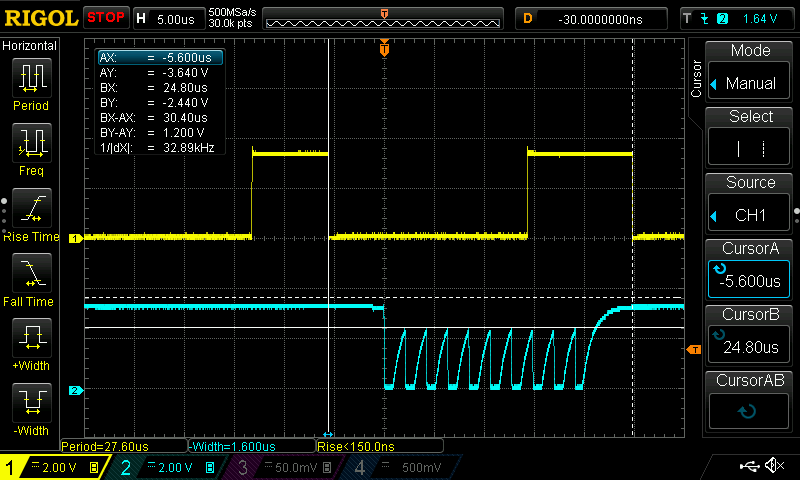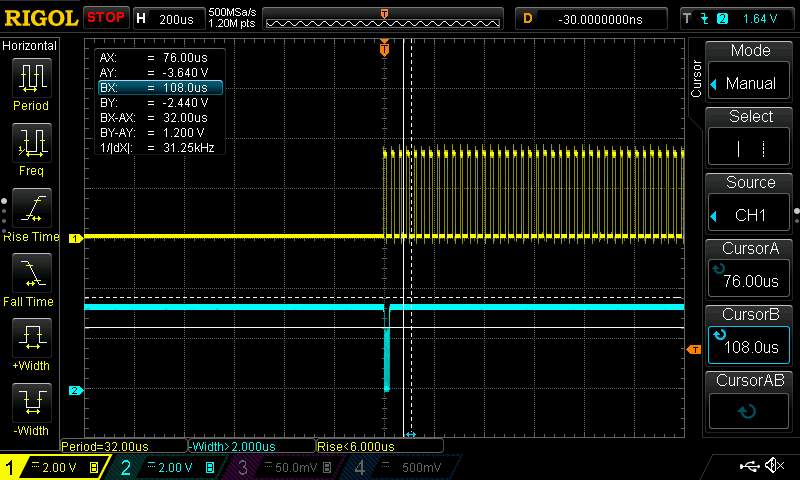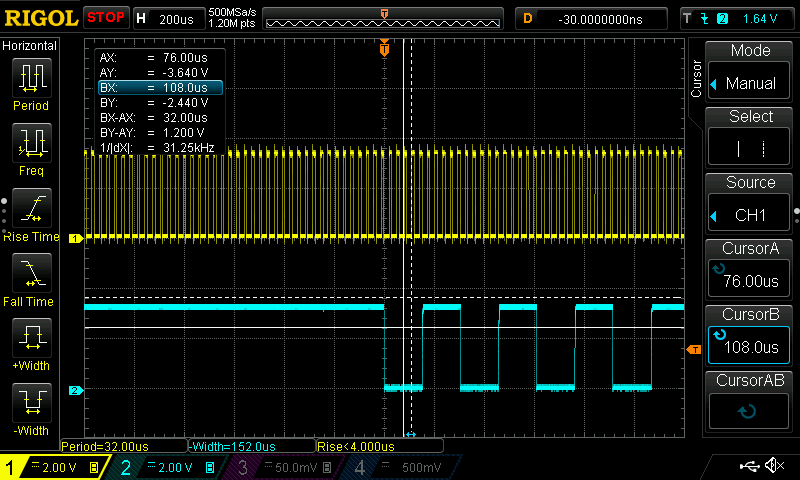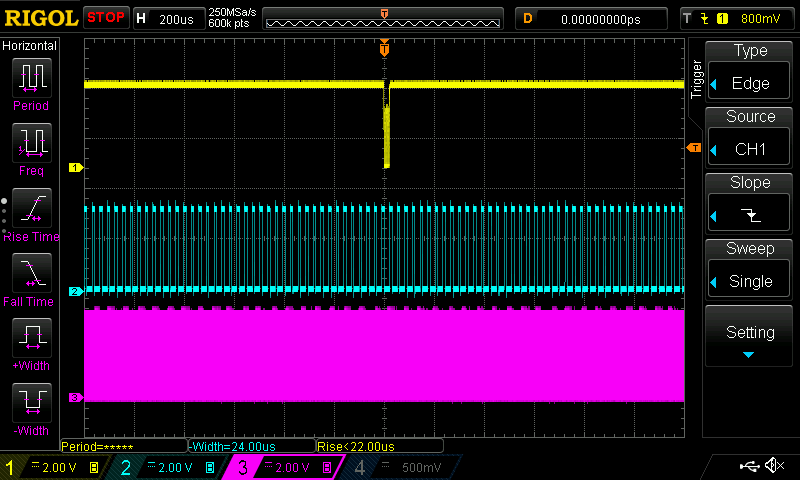Hello everybody,
I'm actually a bit confused. I'm trying to talk in I2C master mode to a not connected device. It is not connected due to some testing scenarios.
I'm using the following code:
#include <__cross_studio_io.h>
#include <msp430f1611.h>
// ---------------------------------------------------------------------------------------------------------------------
// Variables
int delay_counter = 0;
// ---------------------------------------------------------------------------------------------------------------------
// Main function
void main(void) {
// Osc
WDTCTL = WDT_ADLY_1000; // Watchdog timer 1000 ms
//IE1 = WDTIE; // Enable watchdog interrupt
BCSCTL1 &= ~XT2OFF; // Enable oscillator
do { // Delay for external clock
IFG1 &= ~OFIFG;
for (delay_counter = 0xFF; delay_counter > 0; delay_counter--);
} while ((IFG1 & OFIFG) != 0);
BCSCTL2 = SELM_2 + SELS; // External clock (8 MHz)
// Ports
// USART0 (I2C)
P3SEL |= (BIT1 + BIT3); // Peripheral select
// I2C LEVELSHIFTER
P4SEL &= ~BIT1; // I/O select
P4DIR |= BIT1; // P4.1 I2C-LEVELSHIFTER as output
// USART 0
U0CTL |= SWRST; // Init USART0 state machine
U0CTL |= I2C + SYNC; // I2C mode at USART0
U0CTL &= ~I2CEN; // Disable I2C
// I2C
I2CTCTL = I2CSSEL_1; // ACLK clock
I2CPSC = 0x00; // Clock precaler /1
I2CSCLH = 0x0A; // Shift clock HIGH
I2CSCLL = 0x0A; // Shift clock LOW
// EXPECTING:
// ACLK = 32 kHz
// PRESCALED WITH /1 => 32 kHz
// HIGH = 5 x (I2CPSC + 1) = 5
// LOW = 5 x (I2CPSC + 1) = 5
// COMPLETE PERIOD: 10 => 3.2 kHZ
// MEASURED: 250 kHz
I2CNDAT = 0; // Initialize with zero bytes
U0CTL |= I2CEN; // Enable I2C
U0CTL |= MST; // Master mode for MSP
I2CIE |= TXRDYIE + ARDYIE; // Interrupt enable
P4OUT |= BIT1; // Enable I2C levelshifter by default
// I2C write
while (I2CDCTL & I2CBB);
I2CSA = 0x1A; // Slave address
I2CNDAT = 0x01; // Save data lenght
U0CTL |= MST; // Enable master mode
I2CTCTL |= I2CTRX; // Transmit mode
I2CTCTL |= I2CSTT + I2CSTP; // Start condition and stop condition
while(1) { };
}
void I2C_ISR(void) __interrupt[USART0TX_VECTOR] {
switch(I2CIV) {
case 8: // Access ready interrupt
break;
case 12: // Transmit ready interrupt
I2CDRB = 0xAA;
break;
default:
break;
}
}
I'm using two different oscillators on my board. One with 8 MHz at X2IN (MCLK and SMCLK) and a 32.768 Hz oscillator at XIN (ACLK).
It seems, that it doesn't matter what clock source I am selecting with I2CSSELx, the result always stays the same. The first data on the I2C bus (which is the adress of the device) is clocked with 250 kHz.
Can somebody confirm this behavoir and tell me how to change it for use with the slower clock?






